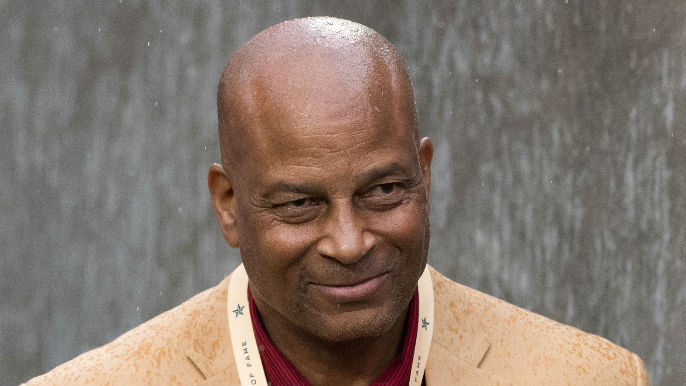SAN FRANCISCO — Oakland civic leaders and deep-pocketed investors fighting to keep the Raiders from moving insist they are still in the game despite team owner Mark Davis formally applying to the NFL to relocate to Las Vegas.
A local investment group that includes Hall of Famer Ronnie Lott said Thursday they continue to negotiate with government officials, the team and the NFL to build a $1.25 billion, 55,000-seat stadium in Oakland.
“We are in this game and we are playing to win,” Lott’s group said in a statement. The statement said the Raiders’ filing Thursday was expected and done to “keep its options open in Las Vegas.”
The Raiders have been seeking to replace their dilapidated home for years. The Coliseum has suffered from sewage backups and other infrastructure problems. It’s also the only remaining NFL stadium to also be home to a baseball team – the Athletics – and lacks many of the modern, money-making features of new stadiums.
Oakland Mayor Libby Schaaf has been negotiating with Davis and investors to find a new home for the team in the city but has said public financing is not an option. She and other local boosters support the bid by Lott’s group to keep the team on Oakland.
“Only Oakland brings the Raiders and the NFL a competitive stadium proposal, along with legacy and loyalty,” Schaaf said in a prepared statement.
The city and Alameda County still owe a combined $100 million for upgrades made to the stadium in 1995 to lure the Raiders back to Oakland after the team spent the 14 previous years playing in Los Angeles. The city and county were left holding the bag after personal seat licenses failed to cover the cost of the $220 million renovation that added more than 10,000 seats and luxury boxes.
The city is willing to give the team 60 acres of land on the Coliseum site to build a new stadium.
The local investors are competing with a Las Vegas plan that calls for $750 million in hotel room tax revenue, $650 million from billionaire casino owner Sheldon Adelson’s company and $500 million from the Raiders and the NFL.
League owners are expected to vote on the proposed move in March.
Local boosters argue that Oakland offers a better football venue than Las Vegas, a transient tourist town with no professional football history. They say the San Francisco Bay Area’s television market dwarves the Las Vegas region’s and that it will cost the team $500 million to relocate.
“I think we continue to offer a far superior deal,” said Scott Haggerty, president of the Alameda County Board of Supervisors. Haggerty is also on the board that manages the Coliseum.
“I think that Mark Davis has been very patient in trying to come up with a stadium plan and I don’t blame him for keeping his options open,” Haggerty said. “But the Raiders belong in Oakland.”
Haggerty and others also say that a Raiders move out of the region threatens to alienate fans who re-embraced the team after it left Oakland after the 1981 season and played for 14 years in Los Angeles only to move back to the Bay Area.
Davis has said the team will continue to play in Oakland until the Las Vegas stadium is finished, likely by the 2020 season. The Raiders have two one-year options to play at the Oakland Coliseum in 2017 and 2018 and are already taking season ticket renewals for next season.
“I’m incredulous this could happen again,” said 57-year-old Jim Zelinski, a lifelong Oakland resident and Raiders fan. “I’m disgusted, to be quite frank.”
Nonetheless, Zelinski has co-founded a fan organization that is lobbying the Raiders and the NFL to keep the team in Oakland.
“We want to combat the narrative that most Raider fans are neutral and don’t care if the team moves to Las Vegas,” said Zelinski, who must decide by next month if he wants to renew his season tickets. “The Raiders need to do the right thing.”


